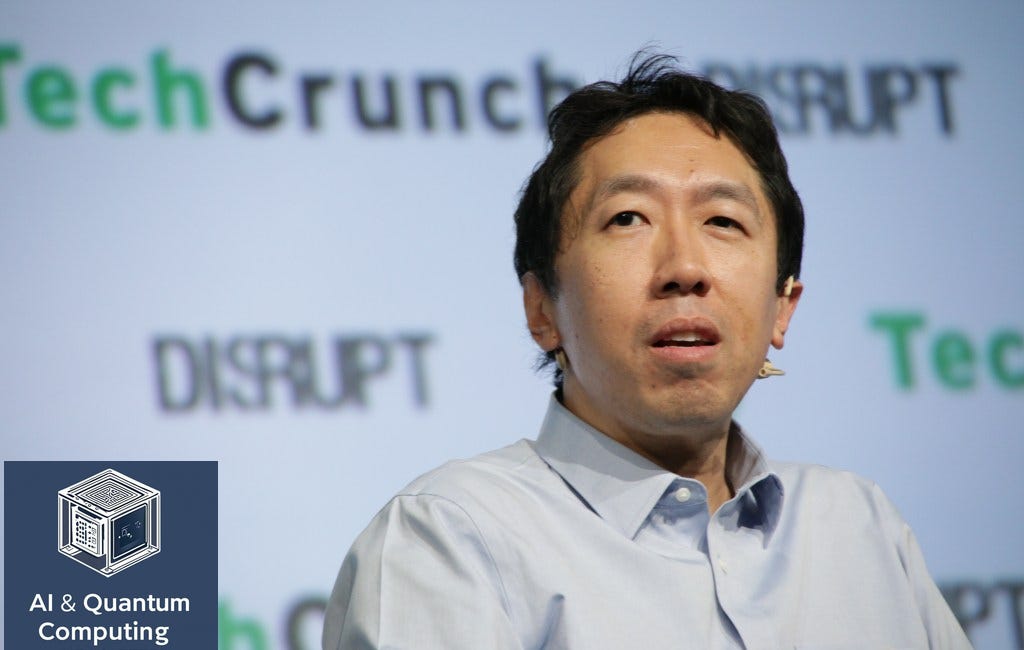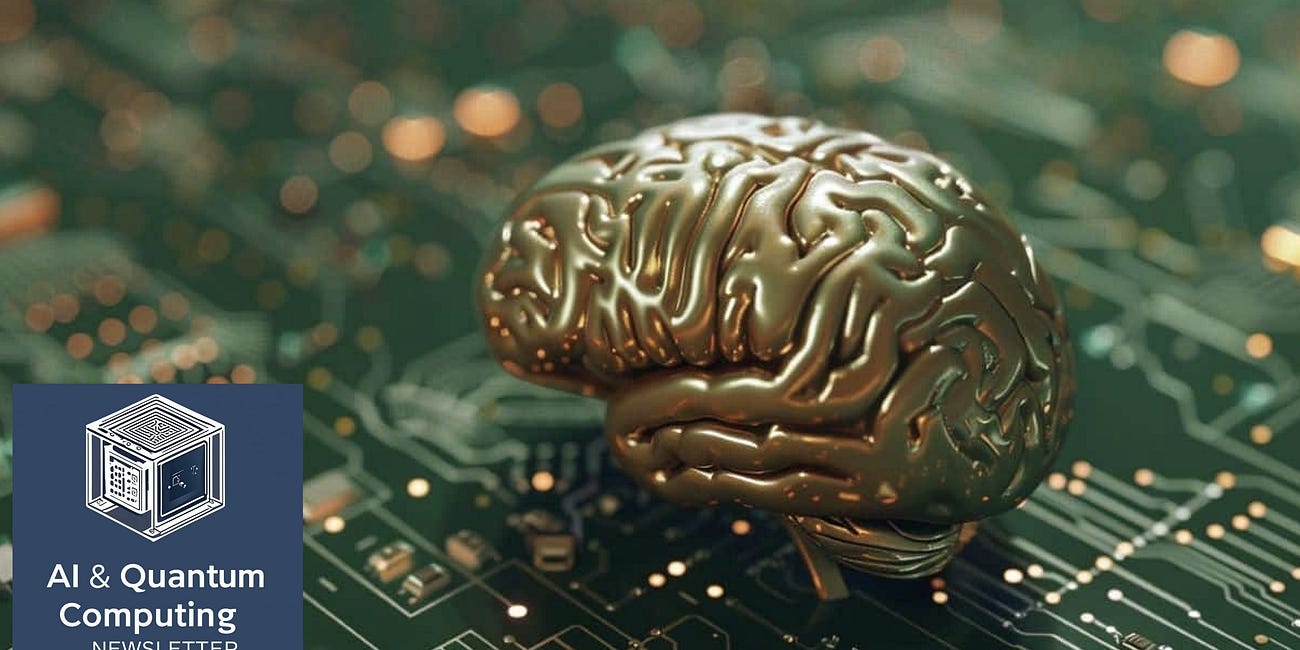Don't Teach Your Kids to Code, Teach Them This: 3 Mindsets for the Quantum Age.
The job of the future won't be to write the code, but to direct the intelligence that does.
Marseille, France – It’s a typically bright Saturday morning here on the coast of Provence, just before 9 AM on August 30, 2025. From a café, you can watch the world hum along with a familiar rhythm. Near the university, students are likely hunched over laptops, learning Python or Java. Across the city, parents are researching coding bootcamps for their middle schoolers, driven by a mantra that has dominated parenting and education for the last fifteen years: “Teach your kids to code.”
It was, and is, well-intentioned advice. It was the ticket to the digital age, the language of the modern world. However, as we stand on the threshold of a new computational era—the Quantum Age—this advice is becoming increasingly obsolete. Continuing to focus on coding as the ultimate future-proof skill is akin to meticulously teaching a child how to be an expert telephone switchboard operator in the age of the smartphone.
The reason is simple: AI is getting incredibly good at writing code. And the Quantum AI of the near future will be able to generate complex, optimized algorithms in moments. The job of the future won’t be to write the code, but to direct the intelligence that does. The value is shifting away from the technical skill of programming to the foundational mindset that can wield these powerful new tools.
We are preparing our children for a world where the answers to nearly any factual or computational question will be instant and free. The bottleneck will no longer be the processing power of our machines, but the quality of our thinking. So, what do we teach them? We must cultivate a new kind of intelligence, one that is uniquely and resiliently human. Here are the three essential mindsets that will empower your children to thrive in the quantum age.
Bitcoin: The Million-Dollar Prophecy in the Face of the Fiat System's Twilight.
The erosion of your purchasing power is not a bug in the current system; it is an essential feature for its survival.
1. The Question Framer’s Mindset: From Answer-Seeker to Problem-Architect
For centuries, our education system has been built on a simple premise: a teacher has the answers, and a student’s job is to learn and recall them. The digital age, with search engines at our fingertips, modified this slightly; the most valuable skill became knowing how to find the right answer. In the coming Quantum Age, where AI can answer almost any question we can conceive, the entire model flips on its head. The world will not belong to those who have the answers, but to those who can formulate the most beautiful, insightful, and challenging questions.
The Shift: We are moving from a world that values answer-finders to one that values problem-architects. A Quantum AI is the most powerful tool ever imagined, but it is still just that—a tool. It is a brilliant, tireless, but literal-minded servant. A vague or poorly constructed question will yield a vague and useless answer. But a perfectly framed, elegantly constrained, and deeply insightful question can unlock a revolutionary solution.
Imagine an AI tasked with “solving traffic.” The results would be a chaotic mess of conflicting data. But what if the question was reframed by a human problem-architect?
“Design a public transport system for a city of one million people that minimizes carbon footprint, maintains an average commute time of under 20 minutes, and ensures no resident is more than a 5-minute walk from a transit stop, all within a specific budget.”
This is no longer just a question; it’s a well-defined universe for the AI to explore. The human value is not in calculating the bus routes, but in defining what “better” truly means—balancing efficiency, equity, and environmental impact.
How to Cultivate This Mindset:
Embrace the Socratic Method: Turn every answer into a new question. When your child asks, “Why is the sky blue?” answer them, and then immediately ask, “That’s a great question. What do you think would make it a different color?” Constantly push them to explore the boundaries of a problem.
Practice Problem Deconstruction: Give them complex, “fuzzy” problems, not simple math equations. For example, “How could we make our local park more fun for everyone?” Then, guide them in breaking it down into a series of smaller, answerable questions: Who is “everyone”? What does “fun” mean for a toddler versus a teenager? What is our budget? What are the safety considerations?
Teach the Power of Constraints: Creativity thrives under constraints. Challenge your kids with design prompts that include limitations. “Build the tallest possible tower using only 20 marshmallows and 10 sticks of spaghetti.” This forces them to think critically about the problem’s structure and innovate within a defined space, which is the essence of great question framing.
2. The Systems Thinker’s Mindset: Embracing Complexity and Probability
Our traditional way of thinking is linear and mechanistic. A leads to B, which leads to C. We like clear causes and predictable effects. This is a relic of the industrial age, and it is woefully inadequate for the challenges of the future. The world’s most pressing problems—climate change, global health, and economic stability—are not simple, linear chains. They are complex, dynamic, and interconnected systems.
Furthermore, the quantum world itself operates on probability, not certainty. A qubit isn’t a 0 or a 1; it’s a haze of possibilities. A child trained only in deterministic, black-and-white thinking will be unable to grasp the nature of the tools they are using or the world they are trying to improve.
The Shift: We must move from linear, cause-and-effect thinking to holistic, probabilistic systems thinking. This is the ability to see the whole forest, not just the individual trees. A systems thinker understands feedback loops, second-order consequences, and the intricate web of relationships that define a problem. They are comfortable with uncertainty and can think in terms of “most likely” and “potential cascades” rather than simple “yes” or “no.”
For example, a linear thinker might try to solve traffic congestion by building more roads. A systems thinker would ask: “How does building a new road affect housing prices, which in turn affects urban sprawl, which then impacts public health, tax revenue, and an ecosystem's water table?” They see the problem not as a simple matter of asphalt, but as a dynamic interplay of social, economic, and environmental forces.
How to Cultivate This Mindset:
Use the Right Games: Many modern board games are excellent tools for teaching systems thinking. Games like Settlers of Catan teach resource management and interconnected economies. Cooperative games like Pandemic teach how different roles must work together to solve a complex, evolving crisis.
Map the Ripple Effects: Turn it into a dinnertime game. Propose a single change and have everyone brainstorm the consequences. “What would happen if everyone in our city decided to plant a vegetable garden?” Map out the first-order effects (more fresh vegetables), second-order effects (fewer trips to the store, changes in the local insect population), and third-order effects (new community businesses, shifts in public health metrics).
Engage with Ecosystems: Whether it’s a small aquarium, a backyard garden, or a walk in a national park like the Calanques just outside Marseille, interacting with natural ecosystems is the best way to develop an intuitive understanding of interdependence and balance.
3. The Ethical Synthesizer’s Mindset: Weaving Wisdom into Data
The old model of education separated knowledge into discrete, isolated silos: science, history, art, and literature. You became an expert in one. In the quantum age, AI will be the ultimate specialist in every silo, capable of generating terabytes of historically accurate text, scientifically valid papers, or artistically coherent images in seconds. The uniquely human skill will not be deep knowledge of a single field, but the ability to synthesize knowledge across multiple fields and filter that synthesis through a lens of human values, ethics, and purpose.
The Shift: We need to raise our children to be synthesizers, not specialists. A Quantum AI could design the most ruthlessly efficient, automated factory in the world, but it cannot ask whether that factory should be built. It cannot weigh the economic benefits against the human cost of displaced workers or the cultural loss of a traditional craft. This is the role of the ethical synthesizer: to be the “human in the loop,” the editor, the curator, and the conscience.
This mindset is about combining seemingly disparate ideas to create something new and meaningful. It’s knowing that to solve a problem in urban planning, you need to understand not just engineering, but sociology, history, and art. It's the ability to see the data, understand the algorithm's recommendation, and then overlay it with wisdom and a sense of shared humanity.
How to Cultivate This Mindset:
Champion Interdisciplinary Projects: Break down the walls between subjects. Ask your kids to “write a song about the process of photosynthesis” or “design a city inspired by the principles of ancient Roman aqueducts.” This forces them to connect different domains of knowledge and express them creatively.
Foster Ethical Debates: Don’t shy away from complex, thorny issues. Regularly discuss ethical dilemmas, from simple ones (“Is it ever okay to lie?”) to complex ones related to technology (“Should a self-driving car prioritize its passenger or a pedestrian?”). Teach them to articulate not just what they believe, but why they believe it, based on a coherent set of values.
Immerse Them in Storytelling: Science gives us facts, but stories give us meaning. Narrative is the primary human technology for embedding values and ethics into information. Encourage a deep engagement with literature, film, and history. This builds empathy and provides a rich tapestry of human experience to draw upon when making complex judgments that go beyond pure data.
The Dance of the Future
From my perspective here in 2025, the pressure to prepare our children for the future feels more intense than ever. But our response should not be to double down on the technical skills of the past. Coding is a skill; question framing is a mindset. Programming is a task; systems thinking is a worldview. Machine learning is a tool; ethical synthesis is wisdom.
The goal is not to train our children to compete with machines. That is a race they will lose. The goal is to cultivate a deeper, more flexible, and more resilient human intelligence that can partner with machines. The future isn’t a race against AI; it’s a dance with it. By teaching our children to be masterful question framers, insightful systems thinkers, and wise ethical synthesizers, we are not just giving them a competitive edge in the job market. We are giving them the tools to lead, to create, and to build a more thoughtful and humane world, no matter how powerful our technology becomes.
The AI Oracle Has Spoken: Andrew Ng's 5 Predictions That Will Mint the Next Generation of Millionaires.
When Andrew Ng makes a prediction, the world of technology holds its breath. This isn’t just another pundit shouting into the void. This is the man who saw the Deep Learning revolution coming in 2008, long before it became a household term. He anticipated the online education boom
With Its Majorana 1 Quantum Chip, Microsoft Is Taking Quantum Computing a Giant Step Forward.
The whole world is currently focused on Donald Trump and his upcoming announcements. With each passing day, Donald Trump takes over the media spotlight. Whatever the field, it seems that Donald Trump wants to be the center of attention. This can be seen in the geopolitical arena, with the exchanges he has begun with Vladimir Putin over the war in Ukrain…
Beyond Brute Force: This Brain-Inspired AI Could Change Everything.
Here is a piece of news that could mark a significant turning point in the relentless pursuit of artificial intelligence. While tech giants compete with ever-larger models that are increasingly hungry for data and energy, a Singaporean startup, Sapient, has just upended the game.





